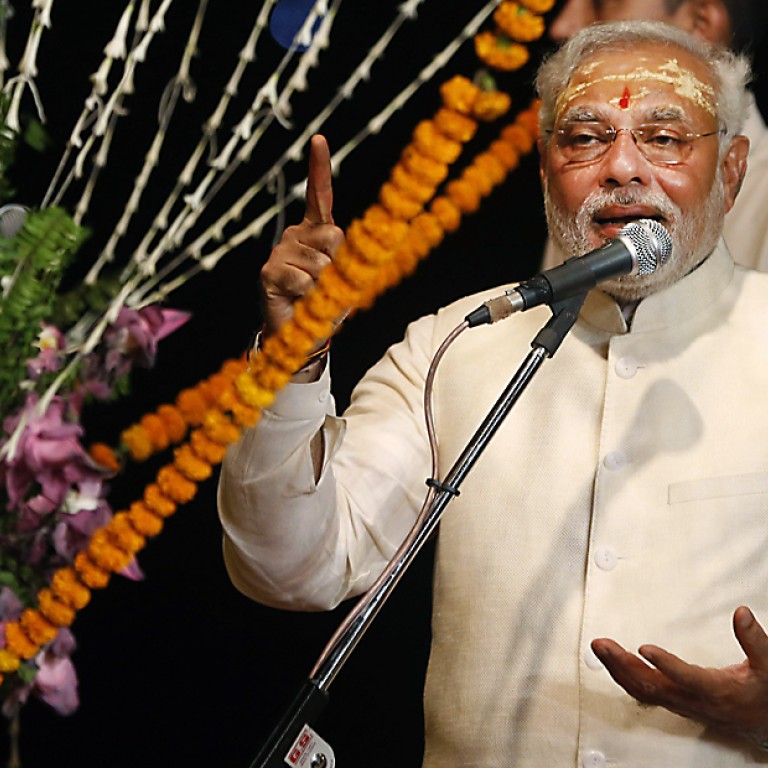
Now Narendra Modi has to deliver
Priya Virmani looks at the economic and foreign policy challenges that await India's new prime minister, with growth the overriding concern
The Bharatiya Janata Party's (BJP) historic win in the Indian election, with its thumping majority of 282 parliamentary seats, will see an end to the era of coalition politics, something which no political pundit had foreseen. India's electorate has upset the applecart of caste, class and religious vote-bank politics.
As was made clear in the run-up to the election, Narendra Modi's main task as new prime minister is to kick-start the ailing Indian economy. As such, it's clear that economic imperatives will be centre stage not only domestically but also in determining the course of Modi's foreign policy, most particularly with the US and China, and also with Pakistan.
Stability is key to delivering on the promises Modi has made to India's 1.2 billion people and he understands this well. Better ties will certainly improve the economy. Even the US, which treated Modi as a pariah because of his alleged role in the 2002 Gujarat riots that left around 1,000 people, mainly Muslims, dead, has now unequivocally extended a welcome to him as India's head of state.
For its part, Washington can't afford to shun Modi, given that its business community has been parked at India's threshold, eagerly awaiting his arrival to herald a more investment-friendly climate with improvements in both bureaucracy and infrastructure. If he delivers on his promises to strengthen India's business climate, this would appease the US in particular.
At the upcoming BRICS summit, the pro-business Modi is likely to reach out to cement trade ties with China. He is also an admirer of China's progress in infrastructure - something he would like to see happen in India. However, he has also been bellicose about border security issues. So it will be interesting to see how China responds to priorities of improving border security infrastructure and to India's growing trade ties with the rest of Asia, especially Japan.
With Pakistan, improved trade will be on the agenda. However, it should be remembered that in the event of any terrorist attack with suspected links to Pakistan, Modi is likely to promote the narrative where the protection of Hindu India takes precedence. This would be a worrying situation and a litmus test for how the incoming government treats minorities.
The new government will be more cautious about upsetting an electorate that is adept at booting out an administration that has disenfranchised them, and will be mindful of the fact that some 9 per cent of minorities voted for the BJP this time, compared with 6 per cent in the past.
Overall, Modi's economic ambitions will be the key driver in international relations, and this is how Modi would like to be seen by the Indian people. There has also been talk of institutional reform and "capacity building" - things that would also factor into Modi's good governance.
The Indian diaspora will also be a seminal consideration, given that they have played a supportive role in the election outcome. India has always had an eye on the resources of its diaspora and Modi is likely to assuage their concerns and desires.
Undoubtedly, Modi's government will be working overtime on the strategy that his economic credentials will endear him to the international community and the Indian people alike.
